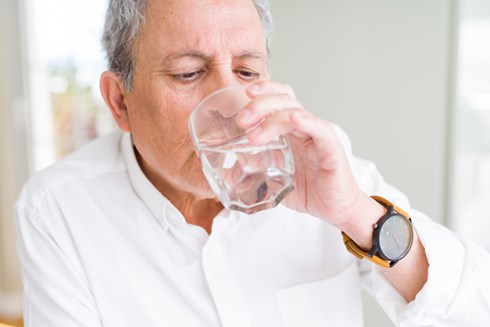The Onondaga County Office of Aging Offers Heat Safety Tips
The National Weather Service is forecasting high temperatures and the Onondaga County Office for Aging is making the following recommendations concerning heat safety tips for older adults as summer’s hot weather can lead to serious heat-related illness, especially for older people and those with chronic illnesses.
The Office for Aging encourages everyone in our community to be aware of seniors, in their neighborhood, and to look for signs of heat stroke or heat exhaustion; or see if the person may be in need of assistance. In the case of a medical emergency call 911 directly.
During this hot weather it is important for everyone, but especially seniors, to follow the following safety tips:
Stay indoors or in an air-conditioned place such as a local senior center, mall or library
Keep draperies and window shades closed
Try to do household chores early in the morning, before it gets too hot

Drink plenty of water regularly, even if you’re not feeling thirsty
Limit intake of alcoholic beverages
Dress in loose-fitting clothing that covers as much skin as possible

Protect face and head by wearing a wide-brimmed hat
Avoid too much sunshine and use a sunscreen lotion with a high SPF rating
Heat stroke is the most serious heat-related illness.
Hot, humid weather causes the body’s temperature to rise, which puts a strain on the heart and blood vessels. Heat stroke or heat exhaustion can result. It occurs when the body becomes unable to control its temperature: the body's temperature rises rapidly, the body loses its ability to sweat, and it is unable to cool down. Body temperatures rise to 106°F or higher within 10 to 15 minutes. Heat stroke can cause death or permanent disability if emergency treatment is not provided.
Warning signs of heat stroke vary but may include the following: An extremely high body temperature (above 103°F); red, hot, and dry skin (no sweating), rapid, strong pulse; throbbing headache, dizziness, or nausea.
Heat exhaustion is a milder form of heat-related illness that can develop after several days of exposure to high temperatures and inadequate or unbalanced replacement of fluids.
Warning signs of heat exhaustion vary but may include the following: Heavy sweating, paleness, muscle cramps, tiredness, weakness, dizziness, headache, nausea or vomiting, fainting, a pulse rate that is fast and weak, or breathing that is fast and shallow.
Click to view a list of air conditioned senior centers
For information visit : www.ongov.net/aging or you can dial 2-1-1.
